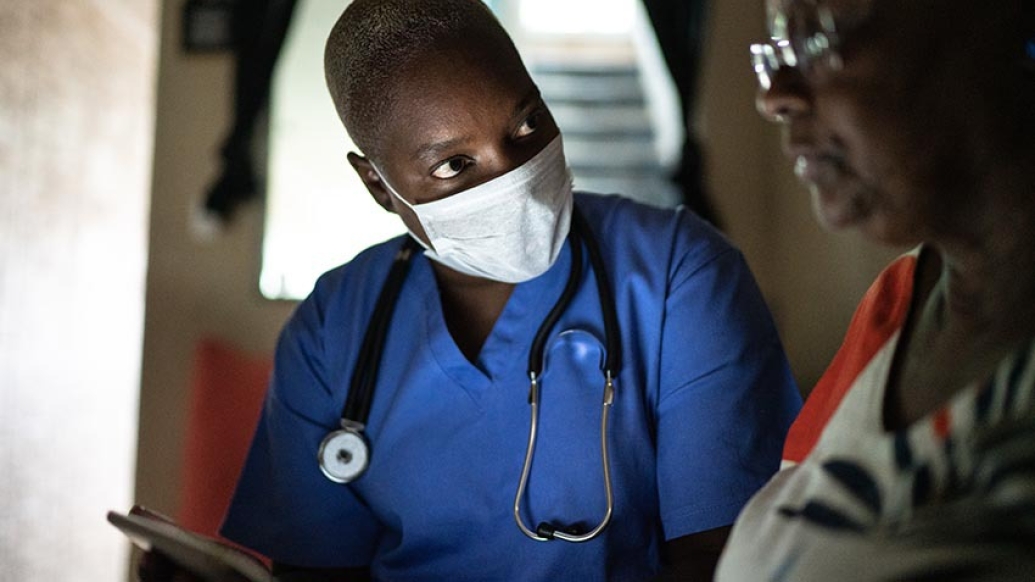Implementing policies and strategies to eliminate racial disparities could improve outcomes for both diseases.
1:26 PM
Author |

Income level, employment, housing location, medical insurance, education, tobacco and alcohol use, diet and obesity, access to medical care. These are some of the factors causing worse cancer outcomes in people who are Black.
The same factors are also causing worse outcomes from COVID-19 in this population.
"The similarities between COVID-19 issues and cancer disparities is uncanny," says John M. Carethers, M.D., John G. Searle Professor and Chair of Internal Medicine at Michigan Medicine.
"In cancer we are seeing in slow motion what has been observed rapidly with COVID – that the same conditions in our society put specific groups at risk for both. If we can fundamentally change socioeconomic inequality, we theoretically could reduce disparities in both diseases," says Carethers, who is a member of the University of Michigan Rogel Cancer Center.
MORE FROM THE LAB: Subscribe to our weekly newsletter
Carethers collaborated with Lisa A. Newman, M.D., MPH, from Weill Cornell Medicine and Robert A. Winn, M.D., from Virginia Commonwealth University on a paper published in Clinical Cancer Research that outlines the similar disparities occurring in cancer and COVID-19 and recommends potential policy changes and strategies to help improve outcomes.
Racial disparities in cancer outcomes are well-documented, with lower five-year survival rates for Blacks than whites within most cancer types. With COVID-19, about 20% of cases in the U.S. have occurred in people who are Black, even though that population represents only 13% of the population. Similarly, Latinos comprise 32% of COVID-19 infections but are only 17% of the population.
SEE ALSO: The Immense Burden of Cancer is Not Shouldered Equally
On the surface these seem like very different diseases – cancer is often caused by genetic defects, COVID-19 is an infectious disease. But, the researchers point out, issues including socioeconomic disadvantages, education, lifestyle factors, other medical conditions and limited access to medical care are fueling risk for both cancer and COVID-19 – and contributing to worse outcomes.
"Eliminating these disparities should be a public health imperative," the authors write.
The major battles for health disparities are insurance coverage and use of preventive health services that could help eliminate co-morbidities such as obesity and diabetes, Carethers notes. The authors offer several suggestions that would impact both cancer and COVID-19 outcomes:
-
Ensure diversity in clinical trial participants.
-
Support public hospitals to meet the health care needs of those who are medically underserved.
-
Improve access to technology so all populations can access telehealth services.
"These strategies are feasible, but will take political will, and in some cases, funding. It relies on what people are willing to do to make it work," Carethers says. "We have much to do at all levels."
Paper cited: "Similarities in Risk for COVID-19 and Cancer Disparities," Clinical Cancer Research, DOI:10.1158/1078-0432.CCR-20-3421
Like Podcasts? Add the Michigan Medicine News Break on iTunes or anywhere you listen to podcasts.

Explore a variety of health care news & stories by visiting the Health Lab home page for more articles.

Department of Communication at Michigan Medicine
Want top health & research news weekly? Sign up for Health Lab’s newsletters today!





